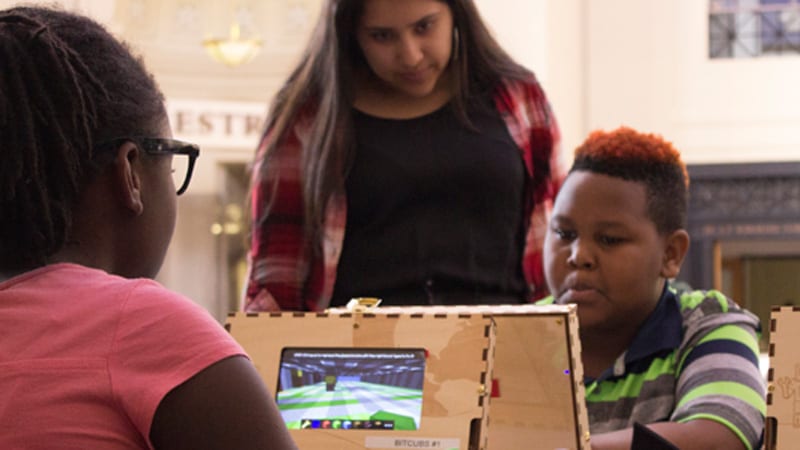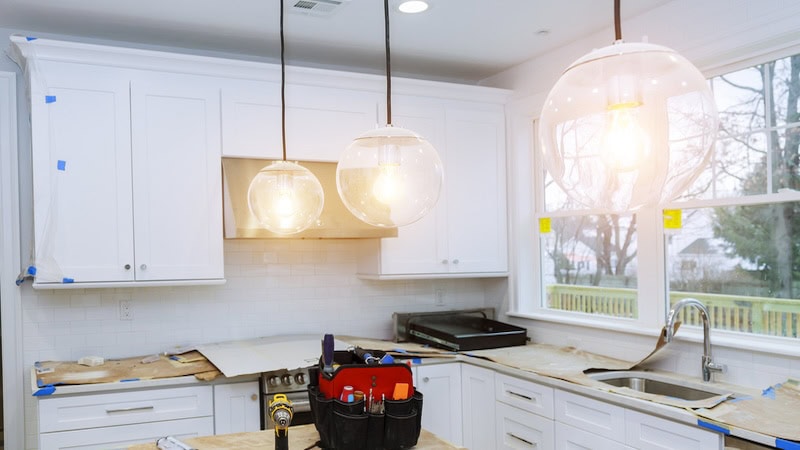Coding in the Classroom
CodeVA works to integrate computer science into Virginia curricula

With technology rapidly taking over our lives and jobs opening up in the industry, the need for teaching computer skills and coding is increasing, too. Chris Dovi, co-founder of the local nonprofit CodeVA, works with legislators to promote computer science in schools across Virginia. He sat down with Bill Bevins and Shelly Perkins to discuss how CodeVA began and what it does for teachers and students.
SHELLY PERKINS: Bill and I normally bring you music-related guests. This guy is not a music guy, and he’s not a boomer. But it is something good that’s going on in RVA that really makes a difference in the future of our kids and our commonwealth. Chris Dovi is here from CodeVA, a nonprofit organization that partners with schools, parents and communities to bring equitable computer science education to all Virginia students.
BILL BEVINS: Hey, Chris, I’m going to ask the obvious question right up front: what is coding?
CHRIS DOVI: First, actually, I’m going to answer what Shelly said before. I actually do play some music. I’m a pretty good harmonica player.
SP: Oh, I’m super sorry that didn’t come up first, ’cause otherwise that would have been fantastic.
CD: And I play guitar. But to answer your question, coding is how we direct a computer to do something. Of course, most people who use a computer think they’re directing a computer to do something, right?
SP: When I push the button, it does what I tell it to do.
CD: It’s amazing, right? Well, somebody else made it do that before you asked it to do that. There’s somebody who wrote a program or application to make that computer do that thing. Coding is the expression that allows somebody to write one of those applications or programs.
SP: Tell us about CodeVA, what you do and what your mission is.
CD: We do advocacy around computer science. We train teachers statewide to teach computer science in public schools, and we also provide student programs for kids. Virginia is the first state in the country that is mandating computer science education for all kids. This is something that CodeVA worked with the legislature to get through in 2016. About mid-November, the state Board of Education adopted Virginia standards of learning for computer science. It means that from now on, this is a literacy that kids in Virginia will be learning. When we’re training teachers, we are training them how to teach coding, but more broadly we’re teaching them how to teach computer science.
It’s a hard thing to try to describe what computer science is when I’m talking to policymakers. They’re like, “We’ve got plenty of computers, what do we need computer science for?” Computer science is a lot of things: it’s a philosophy; it’s in some parts a language; in a lot of parts, it’s a science; it’s a clear way of expressing ideas.
SP: It’s one of the big topics in Virginia right now because we have over 30,000 jobs that are in the computer science field. So what you’re doing is preparing the next generation to fill those jobs as we move forward. Is that what inspired you to start CodeVA?
CD: My dad was an aerospace engineer, and he tried to teach me Fortran when I was in middle school, and that inspired me not to go into computers. As you guys both know, in addition to playing harmonica –
SP: And guitar!
CD: – I am a writer. This came from an article that I wrote. And it was one that my wife, a computer science teacher –
SP: My son had her in high school! She’s fantastic!
CD: I think she’s fantastic, too! So she had been trying to talk me into writing this article about [the robotics team at] Thomas Jefferson High School in the city [compared to a heavily resourced program at Mills-Godwin in Henrico County]. I saw that [Thomas Jefferson was an] underserviced school but was doing really good stuff with their robotics team. As I’m interviewing them for this story, I find out that there’s only one kid on the team and one of the few kids in the entire Siegel Center at this big competition who can code.
[So I realized that very few of the Richmond-area schools were providing adequate computer science training.] Henrico had one class in one high school, Deep Run. There were about 25 seats, only about 12 kids a year took the class. This was in 2010. It made me angry because I know how many jobs rely on computer science – 70 percent of STEM [science, technology, engineering and math] jobs are computer science jobs. It’s in almost everything that we do.
BB: We always hear about how we need more females in STEM. Is it the same imbalance in coding?
CD: It most certainly is right now. And CSforALL, a national effort to get computer science into public schools, is also about creating equity and broadening participation.
SP: And you actually offer some female-only programs at CodeVA?
CD: Camps, yes. We do a girls’ week.
SP: CodeVA is a nonprofit organization. And if people want to know more about CodeVA, there’s a great opportunity that you have called First Fridays.
CD: Yeah, CodeVA is located at Third and Broad streets. And First Friday is just a fun party atmosphere; all the art galleries on Broad Street are doing their new gallery shows. At CodeVA, our kids’ programs are arts-integrated. We end up with lots of really cool projects that we can show off as part of First Friday.
SP: And you do it on First Fridays because it’s art-related! That’s awesome!
CD: Exactly, so it lets people see what we do. Some of it’s art, some of it’s music. We have camps where kids are programming songs, all kinds of really cool stuff.
SP: Do you play the harmonica or the guitar during First Friday?
CD: Oh, I could if somebody requested it.
SP: I think I’m going to be there to request it.
CD: I wouldn’t if I were you.
BB: We requested that Chris join us and tell us a little bit about Code Virginia, and we really appreciate that. And if you would like to know more about it, the website is CodeVirginia.org.


